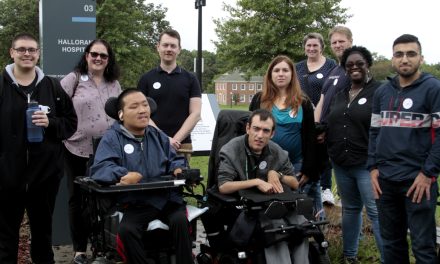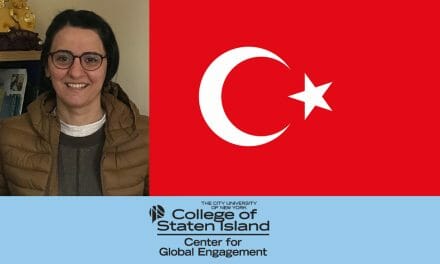As part of a nationwide initiative sponsored by the U.S. Department of State, the College of Staten Island (CSI) announces the World Cultures Project, a new course that uses regular internet technologies to bring students and faculty from CSI, China, South Africa, and Turkey into the same virtual classroom.
WHAT:
World Cultures Project partner colleges engage in global video conferencing classroom demonstration
WHO:
Kadir Has University, Turkey
University of Port Elizabeth, South Africa
College of Staten Island/CUNY, USA
WHEN:
Monday, October 4, 2004 – 8:00 a.m. EDT
WHERE:
College of Staten Island Library (1L)
Video Conferencing Room 220A
2800 Victory Blvd., Staten Island NY 10314
CSI, a senior college of The City University of New York, is the lead institution bringing students together worldwide via 2-way video classroom interaction, live Internet Relay Chat (IRC), e-mail discussions, and an internet based classroom and curriculum software known as the Blackboard Academic Suite.
By using the Global Experience Through Technology (GETT) model developed by East Carolina University, the course will provide students with an international experience while broadening their intellectual horizons by exposing them to worldwide cultures.
The fall semester at CSI has students discussing the theme of globalization with students at Shanghai TV University in China and Kadir Has University in Turkey. The spring semester at CSI will add the University of Port Elizabeth in South Africa as a course partner.
Claiming that complex relations are governing our world today and that cultural interactions are useful to the future of the country, François Ngolet, associate professor of history at CSI teaching the virtual classroom course says that “we are all dependent on the relationships we have with others, and [in this project] student partnership is key to the success, because it is only through frequent contact that students get to know and understand each other, to develop trust, and to establish a close bond.”
This course curriculum includes a round-robin approach between the partner institutions, with classes at each university “linking” with classes at another to discuss different aspects of globalization such as its economic, socio-political and cultural dimensions. After a month to six weeks, the partner-links rotate. By the end of the semester, each university will have “linked” with each of the others.
Students taking the course at CSI are all members of the CUNY Honors College. They meet from 8 to 9:50 a.m. every Monday and Wednesday. A typical classroom session includes a 45 minute lecture presented live in one classroom and via video to the other. Classroom instructors from each country present their interpretations or approaches to the classes on the same topic every week. Lectures are followed by a video-based group discussion, with students then collaborating individually with their counterparts via IRC. When not in the classroom, e-mail correspondence connects the students while working on assignments, and the Blackboard Academic Suite continues as the virtual classroom.
Student collaborative works may include weekly assignments, end-of-link assignments, and end of semester assignments. They will exchange drafts until they agree on the final form which will be submitted to their local instructors before a grade will be given.
CSI is one of eight colleges participating in this nationwide initiative by the U.S. Department of State, and the only college linking with three global universities.
EDITOR’S NOTE: For more information, to schedule an interview, or if you plan to attend, contact Ken Bach at 718-982-2328.















